#a discovery of witches tv series
Text

#matthew goode#a discovery of witches#matthew clairmont#adow#adowedit#matthewgoode#henry talbot#downton abbey#the crown netflix#adowtv#a discovery of witches tv series#all souls trilogy#all souls series#prequel#the blackbird oracle#blackbird oracle#deborah harkness#coming soon#shadow of night#the book of life#goode performance#freud's last session film#new movie#freud's last session#freudslastsession
108 notes
·
View notes
Text
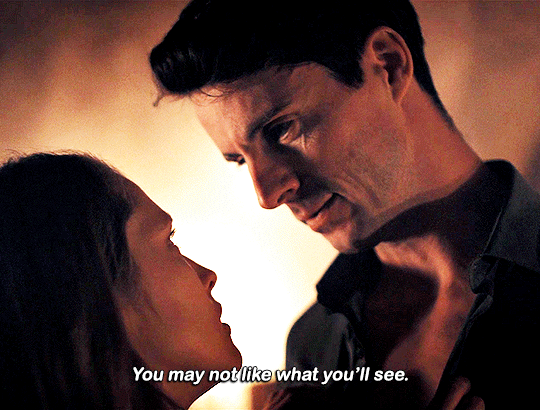
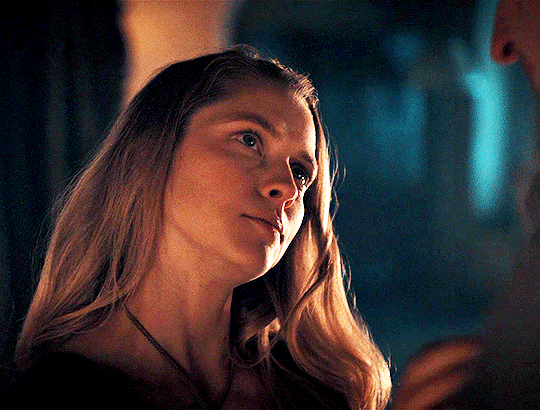
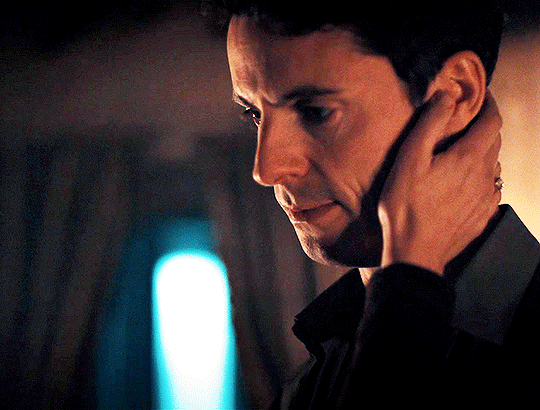
A DISCOVERY OF WITCHES (2018-2022)
#adow#a discovery of witches#adowedit#matthew goode#matthew de clermont#diana bishop#teresa palmer#tvedit#tv series#dailyadowgifs#nostalgia
700 notes
·
View notes
Text
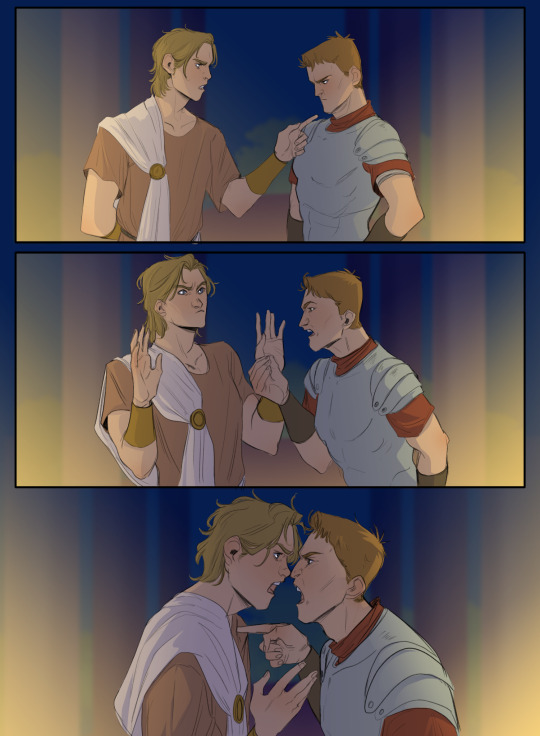

For Want of A Nail, a summary. 😆
Graphic Depictions Of Violence, Major Character Death, Past Abuse, Bullying, Trauma, Non-Sexual Slavery, Baldwin de Clermont/Original Male Character, biBaldwin, Sloooow burn, Angst with a Happy Ending, Pre-Canon AU
Baldwin Montclair had a string of ex girlfriends, a single child, and a lifetime longer than most people could dream of to make all kinds of mistakes.
His family knew one which kept coming out of the woodwork to irritate him every other century.
Artwork by @critical-misadventures
Meme format created by @kristorey
Chapters can be found on my masterlist as well.
#a discovery of witches#adow#baldwin montclair#baldwin de clermont#all souls trilogy#all souls series#all souls tv series#adow spoilers#a discovery of witches season 1#a discovery of witches season 2#a discovery of witches season 3
159 notes
·
View notes
Text
Multifandom Masterlist (Incomplete)
Across the Spider-Verse
Miguel O’ Hara ( AU Crossover)
Oneshot
Extra
Miguel O’ Hara (Boss)
Oneshot
Extra
Criminal Minds
Aaron Hotchner
Chapter 1
Chapter 2
Chapter 3
Chapter 4
Chapter 5
Chapter 6
Chapter 7
Chapter 8
Chapter 9
Chapter 10
Chapter 11
Chapter 12
Chapter 13
Chapter 14
Chapter 15
Chapter 16
Chapter 17
Chapter 18
Chapter 19
Chapter 20
Chapter 21
Chapter 22
Chapter 23
Chapter 24
Chapter 25
Chapter 26
Chapter 27
Chapter 28
Chapter 29
Chapter 30
Chapter 31
Aaron Hotchner Mini Series (Grimm/Criminal Minds Crossover)
Part 1
Part 2
Part 3- Final
Aaron Hotchner-(Genius)
Oneshot
Extra
Smallville
Lex Luthor- Oneshot (Invincible)
Lex Luthor- (Disassociation)
Oneshot
Extra 1
Extra 2
Lex Luthor (Speedster)
Chapter 1
Chapter 2
Chapter 3
Chapter 4
Chapter 5
Chapter 6
Chapter 7
chapter 8
Chapter 9
Chapter 10
Chapter 11
Chapter 12
Chapter 13
Chapter 14
Chapter 15
Chapter 16
Chapter 17
Chapter 18
Chapter 19
Chapter 20- Final
Lex Luthor (Alternate Universe)
Chapter 1
Chapter 2
Chapter 3
Chapter 4
Chapter 5
Chapter 6
Chapter 7
Chapter 8
Chapter 9
Chapter 10
Chapter 11
Chapter 12
Chapter 13
Chapter 14
Chapter 15
Chapter 16
Chapter 17
Chapter 18 - Final
Extra
Lucifer
Micheal
Oneshot
Extra 1
Extra 2
Grimm
Alexander
Chapter 1
Chapter 2
Chapter 3
Chapter 4
Chapter 5
Chapter 6
Chapter 7
Chapter 8
Chapter 9
Chapter 10
Chapter 11
Chapter 12
Chapter 13
Chapter 14
Chapter 15
Chapter 16
Chapter 17
Chapter 18
Chapter 19
Chapter 20
Chapter 21
Chapter 22
Chapter 23 - Final
A Discover of Witches
Baldwin De Clairmont
Oneshot
Extra
Teenage Mutant Ninja Turtles
Leonardo Oneshot- (Writer)
Leonardo Oneshot- (Psychic)
Raphael- Oneshot (Healing)
Raphael - Oneshot (Save/Heroes)
Leonardo Oneshot (Cop)
Oneshot
Extra
Rapheal (Powerful)
Chapter 1
Chapter 2
Chapter 3
Chapter 4
Chapter 5
Chapter 6- Final
Leonardo (Shy)
Oneshot
Leonardo - (Speedster)
Oneshot
Extra
Raphael- (Kiss)
Oneshot
Extra
Leonardo (Reincarnation)
Chapter 1
Chapter 2
Chapter 3
Chapter 4
Chapter 5
Chapter 6
Chapter 7
Chapter 8
Chapter 9
Chapter 10
Rapheal (Telekinesis)
Chapter 1
Chapter 2
Chapter 3
Chapter 4
Chapter 5 - Final
Rapheal- Oneshot (Confessions)
Leonardo & Rapheal (Oneshot)
Rapheal (SpiderVerse)
Chapter 1
Chapter 2
Chapter 3
Chapter 4
Chapter 5
Chapter 6
Chapter 7
Chapter 8
Chapter 9
Chapter 10
Chapter 11
Chapter 12
Chapter 13
Chapter 14 A
Chapter 14 B
Chapter 15 A
Chapter 15 B
Chapter 16
Chapter 17
Chapter 18
Chapter 19
Chapter 20
Chapter 21- Final
Extra 1
Extra 2
Rapheal- Short Story (Shy)
Chapter 1
Chapter 2
Chapter 3
Chapter 4
Chapter 5- Final
Donatello-(Shy)
Oneshot
Extra
Rapheal Oneshot- (Birthday)
Leonardo Oneshot - (Hot Temper)
Oneshot
Extra
Donatello- Oneshot (Touch)
Rapheal (Blind)
Oneshot
Extra
Leonardo (Vigilante)
Chapter 1
Chapter 2
Chapter 3
Chapter 4
Chapter 5 - Final
Extra
Michealangelo Oneshot Series (Time Traveler)
Part 1
Part 2
Part 3- Final
Leonardo- Oneshot (Telekinesis)
Oneshot
Extra
Leonardo -Oneshot (Super Strength)
Oneshot
Extra
Leonardo- Oneshot (Night Talks)
Oneshot
Extra
Raphael- Oneshot
9-1-1
Lou Ransome
Oneshot
Extra
Person of Interest
John Reese- Oneshot
Transformers
Ratchet (Series)
Chapter 1
Chapter 2
Chapter 3
Chapter 4
Chapter 5
Chapter 6
Chapter 7
Chapter 8
Chapter 9
Chapter 10
Chapter 11
Chapter 12
Chapter 13
Chapter 14
Chapter 15
Chapter 16
Chapter 17- Final
Bumblebee
Oneshot
Extra
Bumblebee
Chapter 1
Chapter 2
Chapter 3
Chapter 4
Chapter 5
Chapter 6
Chapter 7
Chapter 8
Chapter 9
Chapter 10
Chapter 11
Chapter 12
Chapter 13
Chapter 14
Chapter 15
Chapter 16
Chapter 17
Chapter 18
Big Hiro 6
Tadashi Hamada
Oneshot
Extra
Tadashi Hamada (Spirit)
Chapter 1
Chapter 2
Chapter 3
Chapter 4
The Flash
Harry Wells (Pain)
Chapter 1
Chapter 2
Chapter 3
Harry Wells (Love)
Oneshot
Cisco Ramon - (Dreams)
Oneshot
Eobard Thawne - (Traveler)
Oneshot
Extra
Extra 2
Timeless Harrison Wells
Oneshot
Extra
Extra 2
Extra 3
Timeless Wells (Speedster)
Chapter 1
Chapter 2
Chapter 3
Chapter 4
Chapter 5
Chapter 6
Chapter 7
Chapter 8
Chapter 9
Chapter 10
Chapter 11
Chapter 12
Chapter 13
Eobard Thawne (Time Master)
Chapter 1
Chapter 2
Chapter 3
Chapter 4
Chapter 5
Chapter 6
Chapter 7
Chapter 8
Chapter 9
Chapter 10 A
Chapter 10 B
Chapter 11
Chapter 12
Chapter 13
Chapter 14
Chapter 15
Chapter 16
Chapter 17- Final
Extra
Harry Wells (Healing)
Chapter 1
Chapter 2
Chapter 3
Chapter 4- Final
Eobard Thawne - (Cupid)
Oneshot
Extra
Extra 2
Extra 3
Harry Wells (Smile)
Oneshot
Flash Imagine
Oneshot
Extra
Harry Wells (Vampire)
Oneshot
Extra
Harry Wells (Angel)
Oneshot
Extra
Eobard Thawne (AU)
Chapter 1
Chapter 2
Chapter 3
Chapter 4
Chapter 5
Chapter 6
Chapter 7
Chapter 8
Chapter 9
Chapter 10
Chapter 11
Chapter 12
Chapter 13
Chapter 14
Chapter 15
Harry Wells (Witch)
Chapter 1
Chapter 2
Chapter 3
Chapter 4
Chapter 4 B- Final
Eobard Thawne (Choices)
Oneshot
Extra
Harry Wells (Boss)
Chapter 1
Chapter 2
Chapter 3
Chapter 4
Extra
Timeless Wells (Solider)
Chapter 1
Chapter 2
Chapter 3
Chapter 4
Chapter 5
Chapter 6
Chapter 7
Chapter 8
Chapter 9
Chapter 10
Chapter 11
Chapter 12
Chapter 13
Chapter 14
Chapter 15
Chapter 16
Chapter 17
Chapter 18
Chapter 19
Chapter 20
Chapter 21
Chapter 22
Chapter 23
E2 Harrison Wells (Metal)
Oneshot
Extra
Reverse Flash- Oneshot (Barrier)
Eobard Thawne- Oneshot (Empath)
Eobard Thwane Oneshot -(Change)
Harrison Wells (College Years)
Oneshot
Extra
E2 Harrison Wells (Meta Reader)
Chapter 1
Chapter 2
Chapter 3
Chapter 4
Chapter 5
Chapter 6
Chapter 7
Chapter 8
Chapter 9
chapter 10
Chapter 11
Chapter 12
Chapter 13
Chapter 14- Final
Savitar (Change)
Chapter 1
Chapter 2
Chapter 3
Chapter 4 A
Chapter 4 B
Chapter 5
Chapter 6
Chapter 7
Chapter 8
Chapter 9
Savitar
Chapter 1
Chapter 2
Chapter 3
Chapter 4
Chapter 5
Chapter 6- Final
Extra
Eobard Thawne (Speedster)
Chapter 1
Chapter 2
Chapter 3
Chapter 4
Chapter 5
Chapter 6
Chapter 7
Chapter 8
Chapter 9
Chapter 10
Chapter 11
Chapter 12
Chapter 13
Chapter 14
Chapter 15
Chapter 16
Chapter 17
Chapter 18
Chapter 19
Chapter 20
Chapter 21
Chapter 22
Chapter 23 - Final
HR Wells
Chapter 1
Chapter 2
Chapter 3
Chapter 4
Chapter 5
Chapter 6
Chapter 7
Chapter 8
Chapter 9
Chapter 10
Chapter 11
Chapter 12
Chapter 13
Chapter 14
Chapter 15
Chapter 16
Chapter 17
Chapter 18
Chapter 19- Final
Bright
Nick Jakoby (Rivals)
Oneshot
Extra
Law & Order SVU
Rafeal Barba- (Rookie)
Oneshot
Extra
Extra 2
Extra 3
Nick Amaro
Chapter 1
Chapter 2
Chapter 3
Chapter 4
Chapter 5
Chapter 6
Chapter 7
Chapter 8
Chapter 9
Chapter 10
Chapter 11
Chapter 12
Chapter 13
Chapter 14
Chapter 15
Chapter 16- Final
Peter Stone
Chapter 1
Chapter 2
Chapter 3
Chapter 4
Chapter 5- Final
Extra
Nick Jakoby (Ally)
Oneshot
Extra
Avengers
Loki Laufeyson
Chapter 1
Chapter 2
Chapter 3
Chapter 4
Chapter 5
Chapter 6
Chapter 7
Chapter 8
Chapter 9
Chapter 10
Chapter 11
Chapter 12
Chapter 13
Chapter 14
Chapter 15
Chapter 16
Chapter 17
Chapter 18
Chapter 19
Chapter 20
Chapter 21
Chapter 22
Chapter 23
Chapter 24
Chapter 25
Chapter 26
Chapter 27
Chapter 28- Final
Daredevil
Frank Castle
Chapter 1
Chapter 2
Chapter 3
Chapter 4
Chapter 5
Chapter 6
Chapter 7
Chapter 8- Final
Foggy Nelson (Childhood Friends)
Chapter 1
Chapter 2
Chapter 3
Chapter 4- Final
Green Latern
Abin Sur- Oneshot (Latern)
#flash#GreenLaternMovie#grimm#criminalminds#marvel#avengers#smallville#bright#transformers#teenage mutant ninja turtles#a discovery of witches#multifandom crossover#tv series#movies#fanfiction
70 notes
·
View notes
Text

Teresa Palmer in A Discovery of Witches (2018) S1E1
Things get creepy for historian and closet witch, Diana Bishop, when she calls up a magical manuscript. Her discovery is about to throw her back into the world of magic and into the path of Matthew Clairmont, a centuries old vampire.
*The scenes in the library are all taken from the Duke Humphrey's Libary in the Bodleian Library, the oldest reading room of the renowned library. It used to be closed off from the public and only used for special collections and manuscript consultations, but is now open to all readers of the Bodleian.
#A Discovery of Witches#tv series#2018#Teresa Palmer#Diana Bishop#witch#vampires#Oxford#England#library#alchemy#sorcery#drama#fantasy#romance#S1E1#just watched
13 notes
·
View notes
Text


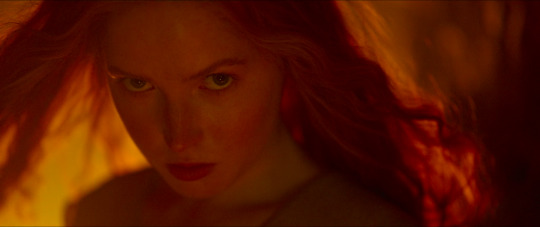
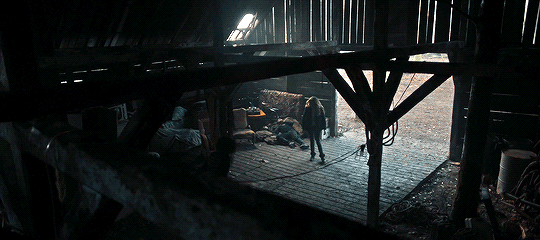








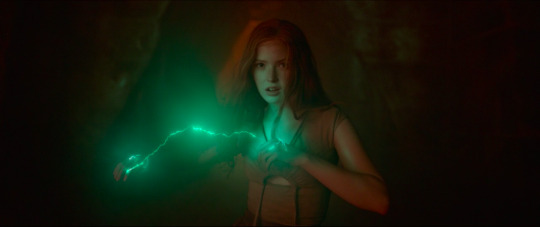

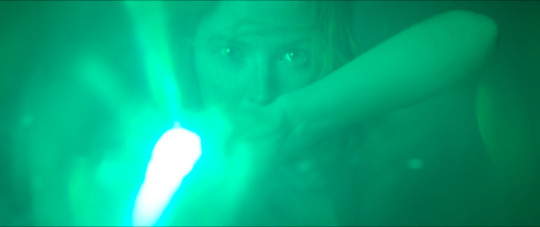

Diana Bishop 🤝 Elora Danan (annihilating the bitch who almost killed the love of their life)
(gifs by @dailyadow and @adowgifs)
#a discovery of witches#a discovery of witches season 1#a discovery of witches s1#adow#adows1#adow s1#adow season 1#diana bishop#teresa palmer#bishmont#willow 2022#willow spoilers#willow series#willow#willow disney+#willow tv show#willow tv series#Willow Wednesday#WillowWednesday#willow wednesday#Renew Willow#RenewWillow#renew willow#graylora#elora x graydon#graydon x elora#graydon hastur#elora danan#ellie bamber#GIFs
53 notes
·
View notes
Link
“EXCLUSIVE: MGM+ has set cast for Belgravia: The Next Chapter, Julian Fellowes’ sequel series to the hit historical drama. Harriet Slater, Ben Wainwright, Edward Bluemel, Claude Perron and Elaine Cassidy are set as series regulars in the drama series executive produced by Gareth Neame and Nigel Marchant. Additionally, Toby Regbo, Hannah Onslow, Sophie Thompson and Sophie Winkleman will recur in the eight-part series. Filming is underway in the UK with premiere set for winter 2023.
The Next Chapter is a continuation of Belgravia, named for and set in the affluent London district that became synonymous with the upper echelons of London society in the 19th century.
Belgravia: The Next Chapter picks up in 1871, three decades after the events depicted in the 2020 limited series, which was written by Fellowes (Downton Abbey, The Gilded Age) and based on his novel of the same name. Developed and written by playwright and screenwriter Helen Edmundson (Dalgliesh, Mary Magdalene), the series tells the love story of Frederick Trenchard (Wainwright), who has grown up as the third Lord Trenchard, and his new love interest, Clara Dunn (Slater), who is a newcomer to London society. Unaware that his birth was the product of an affair between his mother Susan and the scoundrel John Bellasis, a troubled childhood has left Frederick deeply insecure, which challenges his courtship of and marriage to Clara.
Slater’s Clara Trenchard (née Dunn) is a young, smart, and striking woman, and a fresh face amongst the society of Belgravia, Clara is thrilled by her marriage to the enigmatic Frederick … but as she comes to learn more of her husband and the trauma he carries, Clara finds her marriage will not be as smooth as she first thought and is something she must fight for.
Wainwright’s Frederick Trenchard, the young and handsome third Lord Trenchard, Frederick takes after his grandfather with a ferocious work ethic, having built a large business empire. Immediately smitten with Clara, he marries her after a whirlwind romance, but brings with him traumas from his past that threatens his newfound happiness.
.....Regbo plays Rev. James Trenchard, Frederick’s estranged brother. A gentle, kind and religious man, James is haunted by both the separation from his brother and a private battle he is determined to keep hidden.
Onslow portrays Emily Dunn, Clara’s older sister. Emily responds to her sister’s swift marriage with a hint of jealousy as she is desperate to make her own match. But when she throws herself into charity work at her new church,
she is instantly attracted to the Reverend James Trenchard.
....Regbo is known for his leading roles in CW’s Reign and The Last Kingdom. He also starred in Netflix’s Medici and his film work includes Fantastic Beasts: The Crimes of Grindelwald and One Day. Regbo can most recently be seen in Series Three of A Discovery of Witches and Channel 4’s Chivalry. Regbo is repped by Independent Talent Group and Authentic Talent and Literary Management....”
#Toby Regbo#Future Projects#Belgravia: The Next Chapter#TV Series#MGM+#Period Drama#Julian Fellowes#Character#Rev. James Trenchard#Pro-Toby#So Excited#Cast#Ben Wainwright#Hannah Onslow#Edward Bluemel#A Discovery Of Witches#Reunion#Deadline#March 2023#Link#I'll Always Support Toby#Talented
8 notes
·
View notes
Text
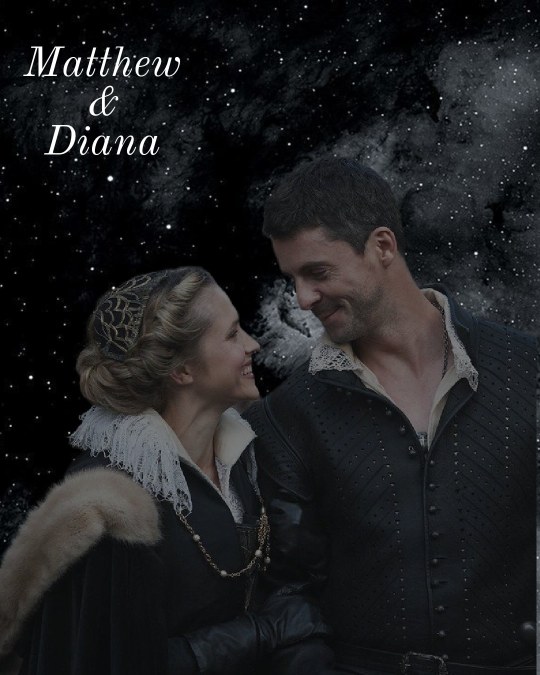
#tumblr#instaphoto#beautiful woman smiling#follow if you like#instapic#love#actress#photoshoot#feelings#beautiful women#a discovery of witches#matthew clairmont#diana bishop#netflix#tv series#movies#books#my edit#edits#photoshop#viral#viral images#viral photo#25000 likes#fictional world#fictional characters#couple#lovers#i love books
11 notes
·
View notes
Text
I passed my first year and did better than expected all around, so how about you guys send me some headcanons for me to react to? 🥰❤️
No matter the fandom I’ll respond to it 😌
Does not have to be the ones mentioned in the tags 😌❤️
Also please keep following here so I can reach the milestone. I’m getting closer but there’s still a way to go 😅❤️

#karen speaks#send me headcanons#any fandom#send me fandom things#law and order svu#law and order#adow#a discovery of witches#kingsman#outlander#mayans mc#grey’s anatomy#chicago pd#chicago fire#chicago med#once upon a time#marvel tv series#marvel movies#marvel cinematic universe#moon knight
11 notes
·
View notes
Text

This #throwbackthursday we’ve decided to highlight our All Souls series review! You might also hear a little more about in our upcoming #topfive!
#nerd#talknerdytome#nerdy#geek#books#fandom#movies#tv show#show#a discovery of witches#all souls series#all souls trilogy#matthew de clermont#diana bishop#gallowglass#sarah bishop#witches#vampire#book review#review#top five#topfive#podcast#fandomsandfantasies#fandoms
2 notes
·
View notes
Text

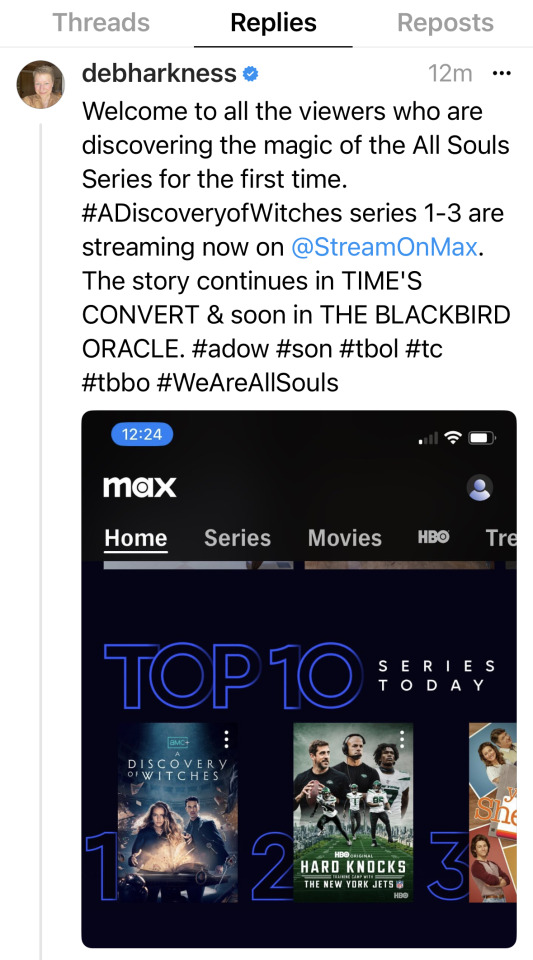
📢 𝓒𝓮𝓵𝓮𝓫𝓻𝓪𝓽𝓮 A Discovery of Witches is now No. 1 on TOP 10 SERIES TODAY! On Max with 96 million subscribers!
DebHarkness Welcome to all the viewers who are discovering the magic of the All Souls Series for the first time. #ADiscoveryofWitches series 1-3 are streaming now on @StreamOnMax The story continues in TIME'S CONVERT & soon in THE BLACKBIRD ORACLE. #adow #son #tbol #tc #tbbo #WeAreAllSouls
#matthew goode#a discovery of witches#adow#matthew clairmont#matthewgoode#henry talbot#a discovery of witches tv series#number one#streaming on max#hbo max#deborah harkness#sequel#the blackbird oracle#all souls series#all souls trilogy#shadow of night#the book of life#time's convert#matthew de clermont#diana bishop#teresa palmer#toby regbo#alex kingston#tom hughes#steven cree#adowtv#what to watch#top of the world#goode performance#tv series
51 notes
·
View notes
Text

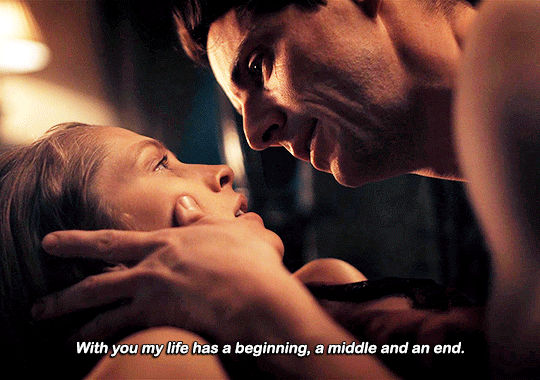

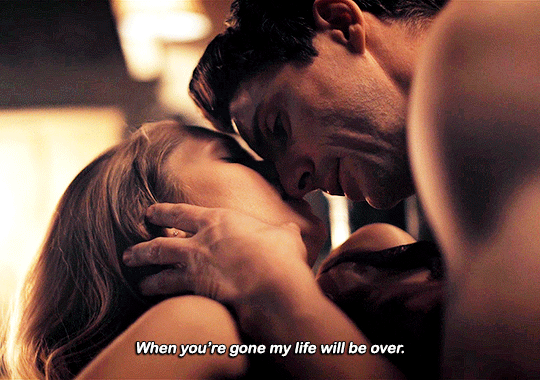
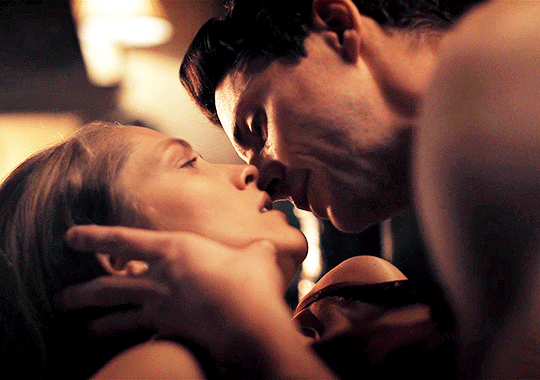

Matthew Goode and Teresa Palmer in A DISCOVERY OF WITCHES (2018-2022)
#a discovery of witches#adow#adowedit#adow gifs#adow season 1#tv series#tv edit#matthew goode#matthew de clermont#teresa palmer#diana bishop#one of my favourite scenes#tv quotes#my edit#my gifs#kissing scene#i love these characters so much#nostalgia#i miss them
701 notes
·
View notes
Text
FOR WANT OF A NAIL
@baldwin-montclair @adowobsessed @sylverdeclermont @nicki-mac-me @thereadersmuse @kynthiamoon @wheresthesunshinesblog @adowbaldwin @beautifulsoulsublime @lady-lazarus-declermont @adarafaelbarba-blog @dogblessyoutascha
Part Fourty-Six
Summary: Baldwin Montclair had a string of ex girlfriends, a single child, and a lifetime longer than most people could dream of to make all kinds of mistakes. His family knew one which kept coming out of the woodwork to irritate him every other century
Also on AO3
The house had been a whirlwind of activity since Martin had first brought Yvette home. Estienne had spent of his time cooing over the baby and worrying about the list of things that she would need. Josselin had rolled her eyes and gone down into the town, muttering something about over-emotional men.
Sister Rosaline hadn't been able to abandon her duties to join the household as Yvette's wet nurse, but she'd passed on the details of a second woman, Loyse, who had accepted the position. She was off somewhere now, setting up her things and sorting out the belongings of her own son, Jaquob.
Martin smiled. The boy had been hovering over Yvette all day, even letting her sleep on his lap while he held her hand.
Her first friend.
Yvette was awake now, eyes roving over her room. It was, temporarily, in the guest quarters while extensions to his tower were completed. There was a wooden cradle in the middle of the room - oak, covered in tangled vines and small birds - and a basket in the corner for dirty swaddling, but for the moment the room was bare of decoration.
'Do not worry,' Martin said softly, 'We shall have some tapestries cleaned and brought up for you.'
Yvette looked up at him, eyes rolling up immediately to stare at the ceiling then over at the window. Martin brought her over and held her up to the glass.
________________________________________________________________
'For the baby,' Miriam smiled, passing Martin a small wooden box.
Martin had given Yvette a proper Gaul baptism during their ride home. Now he had to pay for a Roman Catholic service to make everything legal and above board.
Matthew leaned over Martin's shoulder as he unboxed a silver spoon. The spoon was carefully engraved with YB, the letters entwined by tiny curlicues. 'That is beautiful!'
Martin leaned in and hugged Miriam. 'Thank you.'
'Of course! Anything for my favourite god-daughter.'
The guests parted behind her as Baldwin stepped through.
'Speaking of favourite god-daughters' Miriam murmured.
Yvette was gazing, enraptured, up at Baldwin as he carried her around. They had taken to each other immediately; Baldwin scooped her up and called her pignora, and Yvette shrieked with laughter for the first time ever and buried a tiny hand in his hair.
She was still playing with it now, winding copper strands through her fingers and watching the light play across them. Baldwin had a pinched expression on his face; as they drew closer Martin could smell why.
'All yours' Yvette cried out as Baldwin passed her to Martin, her big blue eyes filling with tears. Baldwin looked as though he'd been stabbed.
'Let us get you changed and Uncle Baldwin can carry you again' Martin kissed Yvette on the forehead as she started to sob, and went off to look for Loyse.
****
'What has happened?' Baldwin asked, as Matthew and Miriam blurted out 'Are you alright?'
'I asked Loyse to show me how to dress Yvette in case I ever need to in future.' Martin passed Yvette to Baldwin; he looked pale and green at the throat.
'And?' asked Baldwin, pointedly ignoring Miriam's unsublte shakes of the head.
Martin shuddered and turned even paler.
****
Later that evening, after the celebratory feast had died down and the guests had gone to bed, and Yvette had finally been peeled off Baldwin and put to sleep in the new nursery, Martin lay on his bed and stared at the ceiling.
Seeing his best friend holding his daughter, it was like - rītije - Martin swallowed the lump in his throat.
A future so tantalisingly close he could picture it as easily as breathing lay just in front of him on the other side of impossible and it was killing him.
Before, when it was just the two of them, - and isn't that a knife twist into his guts- he could pretend that it was fine, that meaningless hugs and stolen glances were enough to close the chasm in his chest.
Now though...
Now...
Now.
'He loves her too..' Martin rolled over, clenching fists into his pillow as he started to sob.
Author's Notes
From my research into medieval childrearing, it appears that nappies weren't used during the period. Instead, the child's swaddling acted as a kind of onesie plus, both clothing and diaper.
"...The most idiomatic and Roman of endearments is pignus. A pignus is whatever one gives as bond or security for a debt, or to assure appearance in court, good conduct, etc. By extension, a person who is a pignus can serve as a “collateral” or “hostage”—for example, in diplomacy between two states. When applied to children, as it sometimes is in epitaphs, in poetry and other emotive contexts, pignora casts them as “sureties” or “pledges” of the love of the parents, assuring the reality of their marriage. But in such contexts it has no legalistic flavor. Often the best translation is simply “dear ones” rather than something more literal, like “little guarantees.”" - Dickinson College Commentaries
Silver spoons: "In many religions, the christening of a baby is an extremely important occasion and one marked with a good deal of ceremony and hope for the future. It’s the moment shortly after birth where a child is named before their God and welcomed into the church as a newborn.
Many faiths have their own form of christening and celebration, but all these occasions tend to involve buying a gift for the new child. In many cases, this is a silver artefact or nicknack such as a spoon, box or bookmark.
There is a rich history for gifting silver christening spoons and it stretches back to Medieval times, perhaps even before then. The original reason for this was not because silver was a valuable metal but because it could help ward off evil and protect the child. The spoon later became a way to wish a child health and prosperity for the future and was highly symbolic.
As silver became a more valuable commodity, its gifting was more generally seen as a matter of prestige. It said something about your status in life and who you were. This is where the phrase ‘born with a silver spoon in their mouth’ came from, with all its negative connotations.
Today, giving a silver christening spoon remains part of the tradition and is usually given by a close family member such as a godfather or mother, brother or sister. The spoon can vary in design from the very ornate to a simple motif but it is normally engraved with the initials of the recipient child." - Edinburgh Silver
rītije/o - copulate (I'm using this as a stand-in for 'fuck' because the Proto-Celtic word list, which sadly is no longer available online, didn't have 'fuck' on the list).
#a discovery of witches#adow#baldwin montclair#all souls trilogy#baldwin de clermont#all souls series#all souls tv series#a discovery of witches season 1#a discovery of witches season 2#a discovery of witches season 3#bibaldwin declermont#baldwin declermont/male oc#bibaldwin
5 notes
·
View notes
Text
I watched an episode of a series, 'A Discovery Of Witches' and one of the characters, Matthew Clairmont who is a vampire, looks like our dear Falk Maria Schlegel from Powerwolf. (Or at least looks a bit similar, in my view.)


Matthew Clairmont - A Discovery Of Witches (TV Series)
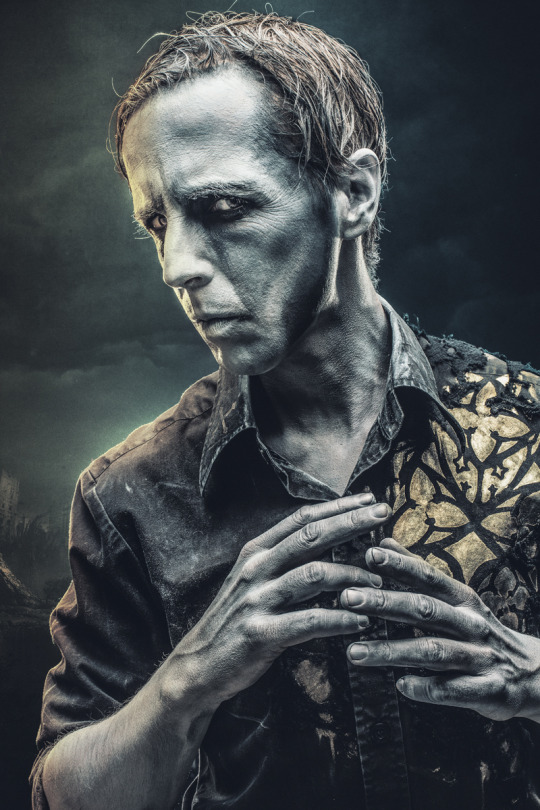

Falk Maria Schlegel from Powerwolf (german power / heavy metal band)
5 notes
·
View notes
Text
“Philosophical and Personal Musings on the Wizard Stone and the Axiom of Proliferation” – An Essay and Divinations for Arc 3 of “The Wizard, the Witch, and the Wild One”
From the Desk of The Bard Bullseye
Happy Birthday, Worlds Beyond Number!
Spoilers abound! This is an essay discussing the actual-play podcast “The Wizard, the Witch, and the Wild One” from the fine folks at @worldsbeyondpod It is an expression of my analysis of and engagement with the content of the second arc of the show and also contains some speculation about future plot and current themes. These interpretations are my own, include some reflections on my personal philosophy, and are written in a mostly academic style of writing (be warned, it’s around 3,000 words!). If you do read through it, I hope you find my points interesting and thought-provoking regardless of whether or not any of it turns out to be true (and I have done my level best to adhere to the facts of the story thus far, with transcript pages and timestamps cited when available/applicable).
Abstract (TL;DR, or I ain’t reading all that, but I’m happy for you):
The Wizard Stone’s discovery that the Axiom of Proliferation is untrue has major implications for the overarching story and the direction of the next arc. Herein, I explore my reaction to this moment in Episode 19 and how my experience and own philosophy potentially align with Stone’s. Then, I examine the logic of her argument and its implications for the greater worldbuilding in Umora. Specifically, there is a fundamental problem with the way that wizards are using the lingua arcana that is affecting the link between the Spirit and the Mortal worlds (i.e., the “greater binding”), and this is leading to detrimental effects. This, I believe is ultimately what Grandmother Wren (and now Ame) and Coven of Elders (and possibly the Man in Black?) are concerned with, though they have come to vastly different conclusions about who is at fault and how to solve this problem, which are yet to be revealed in the forthcoming third arc (see footnote 5).
Introduction
Something has piqued my interest and scratched a deep philosophical itch for me in the second arc of “The Wizard, the Witch, and the Wild One.” While the first arc introduced the characters, explored ideas of ‘quest fever,’ and masterfully wove in lore and character motivations for reclaiming Eursulon’s sword, Wavebreaker, the second arc has expanded upon the characters and their relationship to the greater philosophy of the Citadel and Umora.
I don’t usually speculate where stories might go next or craft my own fan theories. Especially for ongoing projects (i.e. TV shows, actual plays, books in a series, etc.), I tend to be along for the ride, and I spend time analyzing the story being told and the characters within. And rarely do I put these thoughts to paper, at least not coherently; I am more likely to ramble endlessly to a friend or lurk on Discord for others’ opinions, chiming in occasionally. However, I have noticed some things brewing in this arc that I wish to discuss at-length and even speculate upon: my perspective and analysis of the philosophy of the Wizard Stone, and the possible implications for the forthcoming third arc.
I don’t often see myself in stories. Not to say that I don’t see myself or parts of myself represented in media: i.e. demographically, socially, politically, etc., but rarely do I find a specific character or character motivation that ‘snipes through the duplex door’ where I go “oh shit that’s me” or “I relate to this on a deeper level.” This happened to me in Episode 19, when Suvi is investigating the records of her mother’s early time in the Citadel: her expulsion from the College of Divination and readmittance to the College of Abjuration because she had accused one of her professors of “treason against magic itself.”
Upon her dismissal from the Citadel, Stone wrote a dissenting missive to the Archmagi of the Citadel regarding one of the three metaphysical axioms, the Axiom of Proliferation, and how this particular axiom “does not describe any actual truth of the lingua arcana, nor does it more broadly describe any facet of the greater binding” (Ep. 19, transcript p. 12). She goes on to posit that not only is it “pure intellectual technology,” but that its continued acceptance as fact is a “danger to the future of wizardry” and “[a] stain on the face of magic itself” (Ep. 19, p. 12). An axiom in this context is described as “simple… laws that are given to young wizards about broad truths of spell casting in general… that are true across spells [and], … different schools of magic” (Ep. 19, p. 13). That is, “the Axiom of Proliferation is essentially that the more times a spell is written down … the weaker the spell becomes” (Ep. 19, p. 13).
An axiom as defined in philosophy is a statement that is self-evidently true and serves as a starting point for reasoning. Therefore, any argument against its truth would call into greater question the philosophical foundation of the Citadel itself. If Stone’s claim that this was not a true axiom had not been dismissed swiftly and discredited, it is possible (though highly unlikely, given the power of empire) that this would have led to a redefinition of the philosophy of wizardry in Umora.
This is what struck me like a bolt of lighting while listening to this episode. I did almost this exact thing when I was in grad school!
Stone is… me? Faulty logic and its effects
As part of my master’s degree, I took a philosophy seminar on bioethics, which covered some polarizing subjects and more fringe points of view. Most of these topics cannot be directly studied or supported by scientific evidence, so the conversation and academic debate is largely conceptual or theoretical (i.e., conducting research to investigate these ideas have varying states of legality and moral acceptability) (see footnote 1). This course was excellent and a bit out of my comfort zone, but it challenged me to think critically about fundamental logic and accepted ideas that often go unexamined until they are taken to the extreme. At one point in the semester, we were discussing a particular topic and the current state of debate surrounding it. Immediately, I was perplexed by some of arguments made to justify it, and at first, I didn’t have the language to express why. Much like Stone, I found myself screaming (internally) “you’re all idiots!” or “you’re missing the point/the bigger picture!” or “that’s not how that works!” Essentially, I had arrived at the conclusion that if this idea were to be implemented broadly in society, it would likely have major negative ramifications, and furthermore, not even achieve the desired and purported effect that they were arguing for!
Eventually, I figured out what the underlying problem was: a logical fallacy inherent and unidentified within the current debate. Since scholars had just accepted the argument at face value and moved on, most of the debate was concerned with its future implementation or theoretical follow-on effects on individuals and society at large. I did find some existing papers that danced around the idea of fallacious reasoning (i.e., that the theoretical benefits were greatly exaggerated, if not a zero-sum game, or that the negative long-term effects may outweigh the short-term benefits), but none named it specifically or even examined the logical argument the entire debate was predicated on. So, for my term paper, I researched and wrote about this fallacy, and in it, I discussed how the discovery and acknowledgment of it would reframe the debate and perhaps even bring about reform to existing systems!
In the process of writing and researching, I felt incredibly isolated intellectually (this was also peak-COVID so that didn’t help either). Now that I had put the pieces together, it seemed quite obvious to me, but it was difficult to find supporting evidence or other similar arguments to mine (even if they weren’t breaking the logic down so specifically). Was this thing I had reasoned actually true? Why had no one pointed this out before? What if I’m wrong? What if they’re right and I’m a fool for daring to challenge them? What does my professor think? They’re an expert and approved the topic, so I know I’m not entirely off-base, but do they agree with me? I knew that if I wrote a strong, supported, and persuasive argument, that I couldn’t fail, but I deeply cared whether or not I was actually right. It was also probably one of the first times that I wrote with passion (and specific planning ahead of time!), rather than churning out yet another good-enough research paper (that I may or may not have written days ahead of the deadline or the night before).
Thankfully, unlike Stone, my fears that I would not be taken seriously, or worse, told that I was flat out wrong (and be silenced) did not come to pass—my professor agreed wholeheartedly with my argument that this fallacy is pervasive in the current literature. (Though I feel must disclaim that I still could be wrong in some other aspect of my argument, and that simply arguing the existence of a fallacy can be treacherous! In philosophy, no one ever has the only or complete answer—if they claim to, they are either lying or ignorant.) As part of the course, we did a mock peer review in class and my professor sent us further feedback on our papers after we submitted our initial draft of the term paper.
One particular piece of feedback stands out to me upon reflection and comparison to Stone’s experience and the philosophy of wizardry. It said something along the lines of ‘We think that is a very admirable and unique take on this subject. No one found any fault in your logic; however, it is important to consider the practical implications of identifying this fallacy.’ Point taken, of course, that the mere identification of a flaw in logic is not the end of the conversation—it is merely the start of a new discussion and opportunity to surface new arguments.
In my case, the identification of the fallacy was the concrete thing I felt I could verifiably yell about (academically) to explain why I disagreed so vehemently with current literature (and some truly wild propositions made by certain scholars). Of course, one should not commit the ‘fallacy fallacy,’ which is that simply pointing out a fallacy invalidates the argument. Instead, it was a means to discuss practical implications: some less harmful methods, some overlooked existing solutions, and to pull knowledge from other related disciplines that had not yet been considered because this fallacy had yet to be identified (see footnote 2).
The philosophy of Stone’s accusation of ‘treason’ and treatise to the Archmagi
In listening to and reflecting upon this episode and the conclusion of the second arc, I wonder if Stone felt similarly to me: that she had a fundamental disagreement with the way that wizards (and the Empire) conduct magic. I wonder if she learned about the Axioms and something didn't sit right with her, so she dug into the philosophy or history of it. Moreover, I find it particularly striking that her original specialization was divination. Although it has not been stated outright, I think it can be plausibly inferred that Stone divined some kind of knowledge about the fundamental ‘wrongness’ of current wizardry and the disastrous follow-on effects it would have. She may have been unable to fully convey her revelation in the moment, and so just shouted ‘treason against magic’ at her mentor. As was the case with me, the Axiom of Proliferation was just the most concrete thing that Stone could point at to explain herself.
But beyond my own biases and affinity for Stone, it follows that she may well have examined or done a proof on the Axiom of Proliferation which led to her discovery that the premise of the Axiom was false. Let’s examine the argument that Stone may have made (and the one that Suvi may have done a poor proof of, by her own admission). The argument is as follows:
All Axioms of magic describe a truth about the fundamental nature of magic
The Axiom of Proliferation states that the more times a spell is written down (proliferated), the weaker the spell becomes, which is a truth about the fundamental nature of magic.
Therefore, the Axiom of Proliferation is an Axiom of magic.
This can be simplified:
All A’s have property B
C has property B
Therefore, C is A
This does not necessarily lead to a false conclusion, and while the argument may be valid, it may not always be logically sound, see for example:
All people are mortals.
John is a mortal
Therefore, John is a person.
In the Citadel’s view, there is no flaw here, because they teach (and presume) that the Axiom of Proliferation is true in the lingua arcana. Wizards, of course, are known by their secrets, so it follows that in their philosophy of magic, they would have some kind of justification for keeping magic limited to the select few. But, if one of the premises is false (in this case, premise 2), then this justification is in jeopardy. It stands to reason that Stone must have had serious evidence to declare that premise false, and as she was studying divination, it was likely a vision or prophecy of some kind. Presuming she is correct, then it also speaks to her incredible intelligence (although she did not have the social grace at 19 years old to deftly navigate this accusation) (see footnote 3a).
Although (as far as we know), Stone did not make another public ruckus about the Axiom upon returning to the Citadel, I don’t think this caused her to abandon the belief that the axiom was erroneous. Upon her readmission, she joined the College of Abjuration, specifically studying “counterspelling, dispelling magic, [and] sort of metamagic, … the magic of magic itself” (Ep. 19, p. 11). This might seem to be an odd choice for a backup specialization, but Stone’s issue with the Axiom and metamagic are deeply intwined philosophical concepts, as metamagic is essentially the equivalent to metaphysics in our world.
Wizardry and the nature of magic in Umora
Wizards are defined in Umora to be people that can use a “language of magic” the “lingua arcana” to cast magic, and importantly, that “they believe [the lingua arcana] is the language the universe uses to understand itself,” which was only coined about 250 years prior to the present story (Ep. 19, p. 16). At the end of the first arc, Suvi discovers from her father’s notes that the reflexive indicative, which was taught to her as a necessary component of the lingua arcana, is in fact entirely unnecessary for spellcasting. And further, Stone also doesn’t use the reflexive indicative, which is demonstrated through her unique casting of Mending in the very first episode. It is unclear so far in the worldbuilding (to me, at least) if the lingua arcana is the language the universe uses to understand itself, or if it is a construct used by people to explain, communicate, and more importantly cast magic in Umora (much like math and science are ‘constructs’ that describe the nature of our world, though the fact that it is constructed does not mean it is not true). If it is the latter, then there is likely to be forces at work, be it the components of spell casting (such as the reflexive indicative), the casters themselves, or others yet to be revealed, that are manipulating and restricting the nature of magic in Umora (see footnote 3b).
Thus, I would posit that there is some issue in the way that the restriction of the lingua arcana is affecting the “greater binding,” which is “the theory of magic, that magic is the interplay between the Spirit and the Real—or the Spirit and the Mortal” (Ep. 19, p. 14). Essentially, the lingua arcana describes the nature of the relationship between the Spirit and the Mortal world, while the greater binding is the metaphysical link between them. Stone all but confirms this in her letter to the Archmagi, that if the issue is left unresolved, it would endanger the future of wizardry (Ep. 19, p. 12).
Other pertinent wizarding history and context
Stone and Soft were also part of a group called the Acadator, which was dedicated to rooting out corruption and bad actors within the Citadel. We don’t really know too much else about them, the exact specifics of their philosophy, or if they still exist as a group (given that Steel and Eiorghorain were members). There is also some history surrounding two early wizarding groups pre-Citadel, the Antivoli and the Accordati, that had a philosophical disagreement about accepting the help of the Saraz Imperium for building the Citadel (specifically related to the sharing of magic), which led to a civil war called the Cataclysm of Carrow (Ep. 19, p. 16). In terms of timeline, the lingua arcana was coined in 1423, the term ‘wizard’ was coined in 1456, the Cataclysm of Carrow was in 1467, and three years later, in 1470, the Erien (Citadel) was built. The current story with the three protagonists is taking place in 1670, so it has only been 200 years since the Citadel was created, and the lingua arcana coined only 47 years prior to that (in less than a human lifespan).
Further, the creation of the Irulian Desert, the Erien, and the Citadel is a destructive history—wizards razed a verdant forest and turned it into a hot, unlivable desert with a miles high glass tower at the center. Additionally, the Wizards of the Citadel pool their magic beneath the Erien in an ‘Aerith,’ into which they deposit magical reserves and draw upon its combined strength when in crisis (see footnote 4). Mechanically, we see Suvi ‘donate’ unused spell slots at the end of the day.
We do know that Grandmother Wren’s cottage is located on top of a source of great magical power and serves as her sanctum. Wizards also use the towers of the Citadel as their sanctums, and I believe the following is speculation, as I do not think it has been canonized yet, but it is possible that the Aerith serves a similar purpose as a source of great magical power that previously belonged to the Spirits that wizards alone now use and control. This control is the key difference that may be contributing to, or even causing, detrimental effects on the greater binding.
The Witch(es)’s and the Wild One(s)’s perspectives
Additional evidence to support this theory of the Aerith's origins and purpose comes in Episode 23, when Eursulon meets the Man in Black and discusses their opinions on mortals, particularly wizards and their desire for control. Specifically, the Man in Black states, “that tower is the handle of a knife plunged deep into the heart of this world, a heart that is responsible for… a murder to the world of Spirits” (Ep. 23, 0:09:45-0:10:07).
Later, in a flashback with Mirara and Grandmother Wren, Mirara argues that “the world has burned before” (perhaps in reference to the creation of the Irulian Desert), that “[wizards] cannot be allowed to do this thing” (still unclear what that thing is), and the coven must make some kind of decision before it is too late (Ep. 23, 0:58:46-0:59:00). Wren pleas for another option, points this out as a false dichotomy, that they must not “be forced to choose between one slaughter and another,” and they should work to find common ground and coexist (Ep. 23, 0:59:07-0:59:33). Mirara retorts that she could never imagine the day that she would see “the will of wizards debase themselves” (i.e., that wizards would ever lower themselves from their current position of power) (Ep. 23, 0:59:39-0:59:52).
Wren then asserts a key point that correlates directly with Stone’s perspective: “There is nothing I have seen in the world of Mortals or of Spirits that shows me that there is a path that is wrong to tread” or anything that proves the pursuit of wizardry as inherently wrong (i.e., the lingua arcana), only those who “tread paths hurtfully, with cruel intention” (i.e., those abusing the lingua arcana for political purposes and imperial gain) (Ep. 23, 1:00:08-1:00:28). Wren also questions Mirara’s stance of wizardry as “an abomination against the natural order of the world” (Ep. 23, 1:00:40-1:00:47). Mirara then challenges her to consider her point of view and insists that even Wren cannot deny that “the poison of wizards does not spread so quickly as to choke the life from this world” (Ep. 23, 1:01:03-1:01:09).
My pure speculation and fan theory:
From this conversation, I postulate that Mirara and the Coven has taken an extremist and doomed perspective on the harm that is resulting partially from the Axiom of Proliferation (and perhaps the Aerith as well), while Grandmother Wren took a reformist stance. This would put her and her position as the Witch of the World’s Heart at odds with whatever plan the Coven intends to enact. Given what we know of the Witch Class and the other domains of the Coven, their plan is quite possibly violent, retributive, and holds little to no concern for the Mortals or people of Umora.
The third arc will begin with Ame’s meeting with the Coven of Elders at the North Pole, where they will attempt to destroy her station as the Witch of the World’s Heart. For all of the reasons above, I believe this event will connect directly to Stone’s declaration of “treason against magic itself,” but I will just have to (patiently) wait and see (see footnote 5).
Footnotes:
(1) I am well aware that I am being quite vague and obtuse regarding this subject and what specifically I was researching. Mainly because a) that’s not really the point of these musings, this is just some background info and context to explain my philosophy which is already longer than I would like, b) it would be impossible to do justice to an overview of this complex subject in an essay about something that resonated with me in a D&D podcast (and which does not engage with that subject directly, at least not in this context), c) I’ve already written a paper on this subject and am not interested in regurgitating it here, and d) Nunya Binyess (i.e. I could still be wrong about this fallacy and I’d rather discuss WWW than start a tangential IRL philosophical or political argument on this forum).
(2) Though on a deeper level, I partially disagree with the idea that I needed to account for the practical implications of the fallacy within the paper. I disagree that when challenging the fundamental nature of something (e.g., an erroneous argument, a misinformed policy, or an unjust system), there must be an immediate remedy or solution offered up. In my philosophical opinion, once a fallacy like that is identified for something that we hold to be fundamentally true, we need to sit in that revelation and undo the thought processes created by the incorrect assumptions. You cannot flip a switch and suddenly reverse all of the justifications that have gone into supporting a flawed, ingrained argument. To undo a pervasive, incorrect fundamental idea that has been implemented, internalized, or proliferated, first it must be fully examined for all its flaws, rescinded, and only then do we start from square one and think about practical changes (in a perfect world, of course, I am fully aware that the world does not work this way). I do often wonder about this reactive nature in society to demand immediate alternatives and solutions when norms are challenged, though I recognize this is a result of different lived experiences and worldviews. After all, this reactionary nature is true in Umora as well, and the wizards of the Citadel “tend to be a lot more about praxis and practice” (Ep. 19, p. 14).
(3a) Perhaps Stone rolled a nat 20 on some kind of intelligence check for the vision, but rolled a nat 1 on her Persuasion check against Sleep!
(3b) There is another essay I could write here about the history of science and empire (another grad school course) and the reflection of this in the Imperium, its taxonomy, and the (anti)-democratization of knowledge, but perhaps another time.
(4) Something that occurred to me when piecing together the Erien and the Aerith was the similarity to Morrow’s derrick that harnessed Naram’s power in the first arc. Both serve similar purposes as well, of generating magic and magical items. It makes me wonder if it was intended for the derrick to be Morrow’s poor attempt at recreating the glory of the Citadel, or if this is just a happy coincidence/connection between the arcs.
(5) I do want to briefly acknowledge the nature of improvisational storytelling in this situation, and that anything can change, be clarified, canonized, etc. at any point. This is partly why I don’t like to speculate much myself, because I trust the creators to tell the story the way they want to and follow the paths that appear, without projecting my own hopes or prescriptions when I listen to their wonderful creation that has been crafted with such care. It is also why my theory in the end is limited to the meeting with the coven- truly anything could happen at the beginning of the next arc, and whatever I might come up with is likely less interesting than what will happen. (NB: There is nothing wrong with fan theories or head canons! It’s just not usually something that interests me!) I merely saw a connection and through-line that deeply resonated with me in this second arc and felt compelled to write about it. Also, Worlds Beyond Number and WWW is just so fucking great, and it truly astounds me that this story is so deep that I have somehow written a 12-page essay analyzing essentially a 20-minute segment of one episode. I pray to Enzo that there are no grievous errors or spelling mistakes, but I wanted to post this on WBN’s first birthday! 🧡
#worlds beyond number#worldsbeyondpod#the wizard the witch and the wild one#www spoilers#wbn spoilers#wbn#wbn pod#the wizard stone#axiom of proliferation#philosophy#fan theory#chandri newell#soft and stone#the citadel#umora#fan essay#essay writing#food for thought#critical thinking#logical fallacies#coup crew
28 notes
·
View notes